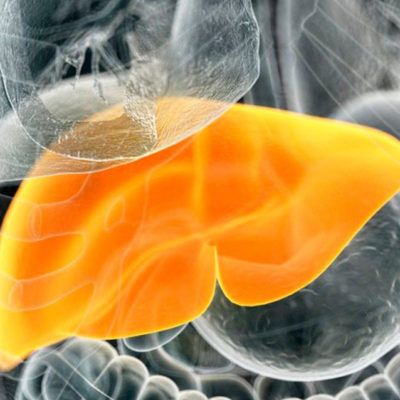The complex balance between food intake and energy expenditure is overseen by the hypothalamus in the brain. While it has been known that the neurons in the lateral hypothalamus are connected to fat tissue and are involved in fat metabolism, their exact role in fat metabolism regulation has remained a mystery. The researchers discovered a cluster of neurons in the hypothalamus … [Read more...]
Weight Management

Fewer Teens Now Perceive Themselves as Overweight
A study involving more than 745,000 adolescents from 41 countries across Europe and North America identified an increase in the amount of teenagers who underestimate their body weight. Tracking data from 2002 to 2018, the peer-reviewed findings, published today in Child and Adolescent Obesity, demonstrate a noticeable decrease in those who overestimate their weight … [Read more...]
One Third of Normal-Weight Individuals are obese, according to study based on body fat percentage
The study -- the largest of its kind ever conducted in Israel -- was led by Prof. Yftach Gepner and PhD student Yair Lahav, in collaboration with Aviv Kfir. It and was based on data from the Yair Lahav Nutrition Center in Tel Aviv. The paper was published in Frontiers in Nutrition. Prof. Gepner: "Israel is a leader in childhood obesity and more than 60% of the country's … [Read more...]
Diet Tracking: How Much is Enough to Lose Weight?
Keeping track of everything you eat and drink in a day is a tedious task that is tough to keep up with over time. Unfortunately, dutiful tracking is a vital component for successful weight loss, however, a new study in Obesity finds that perfect tracking is not needed to achieve significant weight loss. Researchers from UConn, the University of Florida, and the University of … [Read more...]
Researchers Design an Innovative Strategy to Fight Obesity Through Gene Therapy
A scientific team from the University of Barcelona and the CIBERobn has designed a strategy to fight obesity and diabetes in mice through ex vivo gene therapy which consists of implanting cells that have been manipulated and transformed in order to treat a disease. This is the first study to apply the ex vivo gene therapy technique to generate and implant cells that express the … [Read more...]
People with Obesity due to Genetic Predisposition have Lower Risk of Cardiovascular Disease
There has been a global increase in the incidence of overweight and obesity over the past few years. Almost one third of the world's population now liveswith overweight or obesity. "The figure is alarming since it is well-established that a high BMI in middle-age increases the risk of developing cardiovascular disease and other conditions," says Ida Karlsson, assistant … [Read more...]
Obesity Turning Arthritic Joint Cells into Pro-inflammation “Bad Apples”
In a new study published in Clinical and Translational Medicine today, researchers from the University of Birmingham have found that specific cells in the joint lining tissue (synovium) of patients with osteoarthritis are being changed due to factors associated with obesity. Previous research has shown that fat tissue that has been metabolically altered by obesity releases … [Read more...]
Youth Overweight a Risk Factor for Blood Clots as Adult
The association between obesity and blood clots is already established. However, to date it has been unclear how much influence a raised BMI in childhood and puberty exerts. The purpose of the study was to clarify the links between BMI in early life and subsequent thrombi. Thrombi usually arise in the legs, often starting in a blood vessel in the calf. Swelling, pain and … [Read more...]
Rhythmic Eating Pattern Preserves Fruit Fly Muscle Function Under Obese Conditions
Obese fruit flies are the experimental subjects in a Nature Communications study of the causes of muscle function decline due to obesity. In humans, skeletal muscle plays a crucial role in metabolism, and muscle dysfunction due to human obesity can lead to insulin resistance and reduced energy levels. Interestingly, studies in various animal models have shown that … [Read more...]
Study Compares Adverse Events After Two Types of Bariatric Surgery in Adolescents
Adolescents who underwent sleeve gastrectomy, a type of weight-loss surgery that involves removing part of the stomach, were less likely to go the emergency room or be admitted to the hospital in the five years after their operations than those who had their stomachs divided into pouches through gastric bypass surgery, according to new research. Rates of complications, death … [Read more...]
Scientists Redefine Obesity with Discovery of Two Major Subtypes
A team led by Van Andel Institute scientists has identified two distinct types of obesity with physiological and molecular differences that may have lifelong consequences for health, disease and response to medication. The findings, published today in the journal Nature Metabolism, offer a more nuanced understanding of obesity than current definitions and may one day inform … [Read more...]
Insufficient Sleep in Teenagers is Associated with Overweight and Obesity
Adolescents who sleep less than eight hours a night are more likely to be overweight or obese compared to their peers with sufficient sleep, according to research presented at ESC Congress 2022. Shorter sleepers were also more likely to have a combination of other unhealthy characteristics including excess fat around the middle, elevated blood pressure, and abnormal blood lipid … [Read more...]
Sleep is Linked to Heart Health
Sleep duration is now considered an essential component for ideal heart and brain health. Life's Essential 8™ cardiovascular health score replaces Life's Simple 7™, according to a new Presidential Advisory, Life's Essential 8 -- Updating and Enhancing the American Heart Association's Construct on Cardiovascular Health, published today in Circulation, the Association's flagship, … [Read more...]
How High-Intensity Interval Training can Reshape Metabolism
Scientists have shed new light on the effects that high-intensity interval training (HIIT) has on human skeletal muscle, according to a study in men published today in eLife. The findings suggest that HIIT boosts the amount of proteins in skeletal muscle that are essential for energy metabolism and muscle contraction, and chemically alters key metabolic proteins. These … [Read more...]
Excessive Sports Training May Have Negative Effects on Mood
To build fitness, athletes must apply stress to the body, and then through recovery, the body adapts and is able to accommodate greater stress in the next round of training. Maintaining reasonable amounts of stress and promoting recovery is essential to ameliorate the performance of athletes, as well as to prevent injuries and problems associated with … [Read more...]
Diet Type can Increase Potentially Harmful Gas in The Gut
Published in Clinical Nutrition, researchers from the University of Minnesota Medical School looked at colonic hydrogen sulfide -- a toxic gas in the body that smells like rotten eggs -- production in people in response to animal- and plant-based diet interventions. "Although the role of hydrogen sulfide has long been a subject of great interest in the pathogenesis of … [Read more...]
Diets High in Fiber Associated with Less Antibiotic Resistance in Gut Bacteria
Microbes that have resistance to various commonly used antibiotics such as tetracycline and aminoglycoside are a significant source of risk for people worldwide, with the widely held expectation that the problem of antimicrobial resistance (AMR) -- the term that refers to bacteria, viruses, and fungi that are resistant to antibiotics -- is likely to worsen throughout the coming … [Read more...]
Scientists Study Links Between Obesity, Age and Body Chemistry
According to Centers for Disease Control and Prevention (CDC) data collected in 2017-18, more than 42% of U.S. adults and 19% of U.S. youths are obese. Three Clemson researchers and colleagues from the Emory University School of Medicine studied male mice that lacked the Cyp2b enzyme and how the lack of the enzyme affected the mice's metabolism. William Baldwin, a … [Read more...]
Researchers Identify Potential New Treatment for Metabolic Syndrome
"In 2016, our lab discovered a hormone called asprosin, which stimulates appetite and increases blood glucose levels by acting on the hypothalamus and the liver," explained Atul Chopra, MD, PhD, senior author on the study, Investigator at the Harrington Discovery Institute and Associate Director of the Oxford-Harrington Rare Disease Center, Attending Medical Geneticist at UH, … [Read more...]
High Cardiovascular Risk is Associated with Symptoms of Depression
Cardiovascular disease and depression are thought to be closely related due to similar risk factors, including inflammation and oxidative stress. Although it has been shown that depression could be a risk factor for developing cardiovascular disease, studies analyzing the potential impact of cardiovascular health on developing depression are scarce. In the new study, the … [Read more...]
Plant-Based Omega-3s May Boost Heart Health, Reduce Risk of Heart Disease
In a comprehensive literature review, the researchers found that consuming ALA that is found in plant-based foods like walnuts and flaxseeds was associated with a 10% lower risk of cardiovascular disease and a 20% reduced risk of fatal coronary heart disease. Penny Kris-Etherton, Evan Pugh University Professor of Nutritional Sciences at Penn State, said the review suggests … [Read more...]
Exercise Post-Vaccine Bumps up Antibodies, New Study Finds
Researchers at Iowa State University found 90 minutes of mild- to moderate-intensity exercise directly after a flu or COVID-19 vaccine may provide an extra immune boost. In the newly published study, participants who cycled on a stationary bike or took a brisk walk for an hour-and-a-half after getting a jab produced more antibodies in the following four weeks compared to … [Read more...]
How Regular Exercise can Protect Against Fatty Liver Associated Diseases
Exercise not only trains the muscles but can also prevent the development of fatty liver. A new study by the German Center for Diabetes Research (DZD), Helmholtz Munich and Tübingen University Hospital shows which molecular adaptations, in particular of the liver mitochondria, can be observed in this process. The study has now been published in Molecular … [Read more...]
Researchers call for a focus on fitness over weight loss for obesity-related health conditions
The prevalence of obesity around the world has tripled over the past 40 years, and, along with that rise, dieting and attempts to lose weight also have soared. But according to a review article publishing September 20 in the journal iScience, when it comes to getting healthy and reducing mortality risk, increasing physical activity and improving fitness appear to be superior to … [Read more...]
Prior Training can Accelerate Muscle Growth Even after Extended Idleness
According to a report by the American Psychological Association published in February 2021, 42% of American adults reported unintended weight gain since the COVID-19 pandemic began, averaging about 29 pounds. For those who are still struggling to get back on track with their exercise routine, there is encouraging news: new research from the University of Arkansas indicates … [Read more...]
Dieting: Villain or scapegoat?
For decades, there has been an accepted definition of dieting in academia, and in society as a whole. Michael Lowe, PhD, a professor in Drexel University's College of Arts and Sciences, has recently reevaluated the decades of dieting research to redefine the way researchers and the public define -- and therefore understand -- dieting and the culture of weight loss. According … [Read more...]
Boosting Body Heat Production: A new Approach for Treating Obesity
A receptor that helps conserve energy when food is scarce may be the key to a safer approach to treating diet-induced obesity, research led by the Garvan Institute of Medical Research has revealed. In a study using experimental models and fat tissue biopsies from obese individuals, the team revealed that blocking a specific receptor of the molecule neuropeptide Y (NPY), … [Read more...]
Losing Weight Through Exercise
Why physical activity entices you to eat more - and how to fight it Worldwide 39 percent of the adults were overweight in 2016, according to statistics of the World Health Organization. In the US the prevalence of obesity was 42.4 percent in 2017/2018, according to a survey of the National Center for Health Statistics (NCHS). Concurrently millions of people want to lose … [Read more...]
Cells Burn More Calories After Just One Bout of Moderate Aerobic Exercise, OSU Study Finds
In a recent study testing the effects of exercise on overall metabolism, researchers at Oregon State University found that even a single session of moderate aerobic exercise makes a difference in the cells of otherwise sedentary people. Mitochondria are the part of the cell responsible for the biological process of respiration, which turns fuels such as sugars and fats into … [Read more...]
Satiety factor Associated with prolonged exercise
A drug that helps us to eat less could help the more than 650 million people around the world who live with obesity. One of the emerging drug candidates that interest researchers is the hormone GDF15 that, when given to rodents, lowers their appetite and body weight. New research from the University of Copenhagen finds that the body produces large amounts GDF15 during extended … [Read more...]
- « Previous Page
- 1
- 2
- 3
- 4
- …
- 28
- Next Page »





























